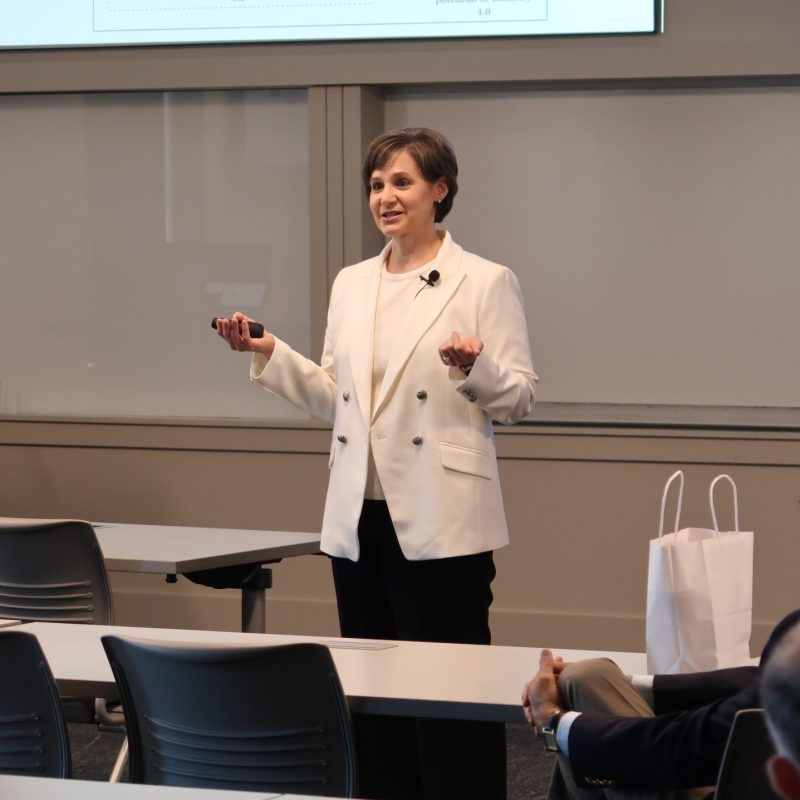As part of the Culverhouse Distinguished Speaker Series, Van Andel Professor of Business Analytics at Miami University Dr. Allison Jones-Farmer visited the College on Friday, April 5 to present her lecture, “Our Tech-Enabled Future: How Enabling Technologies are Shaping the Future of Analytics Practice, Research, and Education.”
Jones-Farmer, a 1998 graduate of the Applied Statistics doctoral program at Culverhouse’s Manderson Graduate School of Business, discussed the evolution of data modeling, recalling a visit to London with her family where she marveled at the way that WWII was planned and executed, with little to nothing in the way of computerized data tracking. She traced the development of data modeling from that time until the present, noting that in the space of a lifetime, we developed large language models, with the 2017 introduction of the transformer architecture representing a “seismic shift” in how data is processed.
For the last few years, Jones-Farmer, who built and chairs the business analytics program at Miami, has been studying LLMs to “see how they’re performing so that I can know how to direct our faculty for what we’re going to teach in business analytics.” For instance, in one study they “grounded” an instance of a LLM in vetted material licensed via Creative Commons, and compared the accuracy of its output to standard LLMs like ChatGPT4. Though the grounded LLM did not perform radically better than the others, Jones-Farmer considers this to be only an early experiment in an ongoing research agenda.
Overall, LLMs are here to stay, and though Jones-Farmer doubts they will replace human practitioners anytime soon, they will almost certainly continue to be used by practitioners, especially as the models evolve. She noted that it’s incumbent on educators, then, to ensure that they are training practitioners to use these tools in smart, defensible, and ethical ways.
“I read an article in the Wall Street Journal two days ago about the head of DeepMind and the head of Google Brain, and they’ve been forced to merge together within Google’s structure, and they’re fighting over these issues of what can be replaced and what can’t be replaced with an algorithm,” Jones-Farmer concluded.
“So if they don’t know, I certainly don’t know, but I’m trying to figure it out in my little microcosm of the world leading…programs and trying to do research and teaching students. Finally, how are we going to educate our future workforce on these issues?”
Professor Jones-Farmer’s visit was organized by Dr. Subha Chakraborti, a professor in the College’s Department of Information Systems, Statistics, and Management Science, with support from the Dean’s Office.

